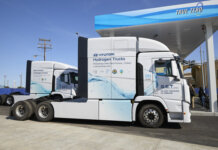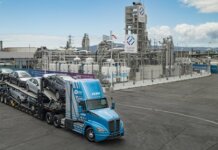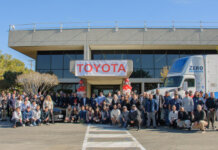Advent Technologies, a company that specializes in fuel cell and hydrogen technology, has reached an agreement to collaborate with Los Alamos National Labs, the University of Texas at Austin (UT Austin), Rensselaer Polytechnic Institute (RPI), the University of New Mexico and Toyota Motor North America R&D (TMNA R&D) to continue the development of next-generation high-temperature polymer electrolyte membrane (HT-PEM) fuel cell technology for the automotive industry.
The program is funded by an Advanced Research Projects Agency–Energy (ARPA-E) OPEN award.
“We at Advent are committed to bringing HT-PEM technology to the market,” says Dr. Vasilis Gregoriou, founder and CEO of Advent Technologies. “Drawing on our leadership team’s decades of experience, we intend to commercialize and scale-up membrane electrode assembly (MEA) production while working closely with Tier-1 manufacturers and original equipment manufacturers. We believe that HT-PEM represents not only a breakthrough for heavy-duty automotive technology but also for aviation, portable and off-grid power generation.”
The purpose of the development program is to use HT-PEM technology operating at 80℃-150℃ to achieve a variety of objectives, including:
-High Energy Efficiency: The target efficiency of the HT-PEM simplified fuel cell system is 70% vs. 60% for current incumbent technology; thereby providing a significant total cost of ownership advantage
-Fast Startup Time: Develop extremely stable fuel-cells that can start under nearly water-saturated conditions
-Superior Heat Management: Completely remove the external humidifiers/demisters and substantially reduce the size of the radiator
-Increase Lifetime: Boost tolerance to impurities and improve performance with platinum and non-platinum catalysts
-Address the hydrogen infrastructure challenge: Allow for the direct reformation of a variety of fuels (natural gas, methanol, ethanol and zero-carbon emissions eFuels of the future) to low grade (impure) hydrogen within the vehicle, thus bypassing the need for expensive hydrogen storage, transportation and hydrogen refill stations





